Bottled Water vs. Filtered Water: Which Is Best For You?
Learn about the differences between in-home water filtration and bottled water.
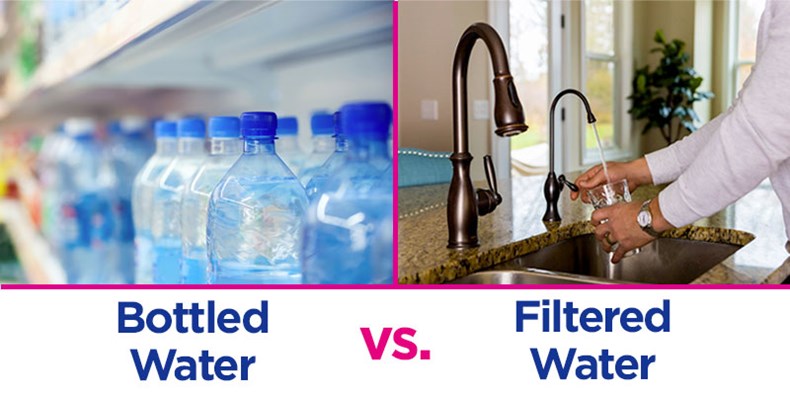
Over the past few decades, bottled water has become commonplace in everyday life. Bottled water is often found on the grocery lists of consumers all over the world. Even though most of us have access to water in our homes, bottled water is believed to be a convenient and “safer” alternative to tap water. This belief prompted the growth of bottled water beyond any other option in the beverage industry.
In a report published by Allied Market Research, the global market for bottled water was valued at $169.8 billion in 2015 and is projected to reach $319.8 billion by 2022.
Are single-use bottles the best way to fulfill our water needs or is it simply a matter of convenience and habit?
Some people opt for bottled water because their tap water tastes or smells bad. Although bottled water may taste better, it may not be the best solution. According to the Center for Disease Control, (CDC) some bottled water is nothing more than treated water from a municipal water supply, or simply put, tap water packaged in plastic bottles. If you want to drink higher quality water that tastes and smells better than what comes from your tap, you should consider in-home water treatment.
When making a decision about the water you drink, there are several things you should consider.
- Is it strictly great-tasting drinking water you want?
- Are you concerned about contaminants that could be in your water?
- Are you interested in a more sustainable approach to better water?
- Are there additional water problems you encounter in your home?
- What option is more cost-effective?
Let’s compare bottled water with in-home water systems to see which might better suit your needs.
Learn more about in-home water systems
Cost of bottled water vs. cost of a water filter
Most people have a preconceived idea that bottled water is inexpensive. When looking at the cost of a single bottle, it is. But bottled water is quite expensive when compared to tap water. According to an article from Slate, the average cost of bottled water is about $1.22 per gallon. Depending on where you live, tap water may cost as little as $0.004 per gallon. That means consumers are spending about 300 times more to drink bottled water than tap water.
Bottled water is about $1.22 per gallon where tap water costs only $0.004 per gallon.
Most often, consumers purchase bottled water strictly for drinking purposes. It’s not often people use bottled water for making ice, cooking pasta or rice, baking, making soups or water-based beverages like coffee or tea, etc. If you indeed use bottled water every time water is consumed, the cost would really add up.
With an in-home water filtration system, you have the initial upfront cost of the system plus occasional filter cartridge replacement, but over a short amount of time, an in-house water filtration system becomes the more affordable option – especially considering the convenience, abundance and improved quality of the water.
Health/Wellness
Consumers often believe that bottled water is better for their health than tap water. In many cases, this is not true.
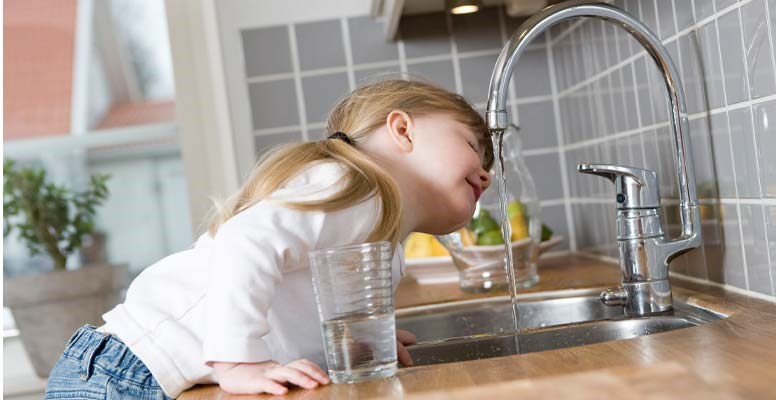
Not regulated like tap water
Many consumers buy bottled water because they think tap water is unsafe. What they may not know is that bottled water and tap water have similar safety and quality standards. According to the Mayo Clinic, within the United States, the FDA oversees bottled water and the EPA regulates tap water. The FDA and EPA use similar standards for ensuring safety, which means the standards set for tap water are similar to the standards for bottled water.
The FDA regulates bottled water, but their standards still allow certain levels of contaminants in bottled water. This is not unlike the standards set forth by the EPA for drinking water.
Schedule A Water Test To Learn The Levels Of Contaminants In Your Water
Microplastics
Bottled water poses a possible health risk - the packaging. When bottled water is packaged in plastic bottles, the plastic can leach into the water over time, meaning the consumer will actually consume some plastic. Bottled water can contain microplastics which are fragments of plastic that are so small they can’t be seen but can be easily consumed. According to a Consumers Affair article, Sherri Mason, a chemist at the State University of New York at Fredonia, tested 259 brands of bottled water for plastic particles and found that 93 percent of the bottles tested showed signs of microplastics. If you don’t like the possibility of consuming microplastics, don’t drink bottled water in a plastic bottle.
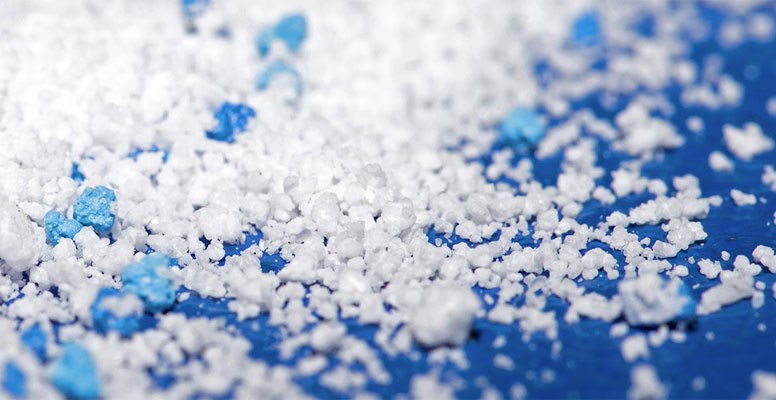
Sustainability
Bottled water may be convenient, but it is quite harmful to our environment. According to a Huffington Post article, plastic water bottles are made of completely recyclable polyethylene terephthalate (PET) plastics, but PETs are not biodegradable. They are actually photodegradable which means the plastic bottles break down into smaller particles over time but they never completely decompose. These particles, or microplastics, will also absorb toxins over time and continually release them into the environment, causing pollution in our waterways and soil. To make matters worse, according to the EPA the national recycle rate for PETs in the U.S. is not quite 30 percent, meaning nearly 70 percent of all plastic water bottles end up in landfills.
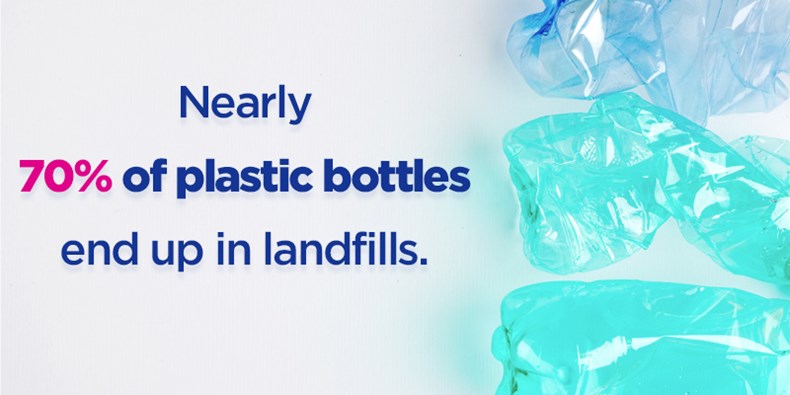
The production and distribution of bottled water is extremely taxing on the environment as well. The amount of oil used to produce plastic bottles is staggering. And then there are environmental issues when transporting bottled water all over the word, whether by truck, rail or freighter.
Bottled Water vs. Kinetico Drinking Water Filters
| Bottled Water | Kinetico Drinking Water Filters | |
| Budget Friendly | ✓ | |
| Great Taste | ✓ | ✓ |
| Convenient | ✓ | ✓ |
| Environmentally Friendly | ✓ | |
| Odor Free Water | ✓ | ✓ |
What's the Solution?
If you are unsure about the quality of your tap water and want the convenience and better taste of bottled water, there’s a simple solution. Consider an in-home water filtration system. You will save money over time, have an abundant supply of high-quality water right at your fingertips, and you’ll be protecting the environment.
There are several options ranging from water pitcher filters to whole-house water filtration systems. Finding the best solution for your home depends on the water source, what’s in your water and the quality of water you desire. At Kinetico, we offer several water treatment solutions to improve drinking water only as well as whole-home water filtration systems.
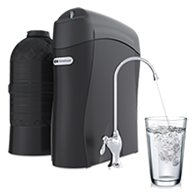
Kinetico Drinking Water Systems
Kinetico provides multiple drinking water solutions ranging from multi-stage reverse osmosis systems to simple water filters. Our most popular drinking water system is the K5 Drinking Water Station, followed by the AquaKinetic A200 and the MACguard Filter. Depending on your wants and needs, each is a great alternative to bottled water.
Kinetico Drinking Water Systems
| K5 Drinking Water Station | AquaKinetic A200 |
MACguard Filter |
|
| Reverse Osmosis | ✓ | ✓ | |
| Third-Party Certified | ✓ | ✓ | ✓ |
| Reduces Heavy Metals (i.e. lead) | ✓ | ✓ | ✓ |
| Dedicated Tap | ✓ | ✓ | ✓ |
| Customizable Filtration | ✓ | ||
| Everclean Rinse | ✓ |
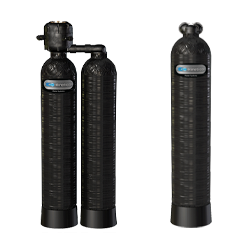 Kinetico Whole-Home Water Filters
Kinetico Whole-Home Water Filters
Kinetico offers several whole-home water filtration systems as well as water softeners and drinking water systems. Our whole-home water filters improve the quality of water throughout the home. Depending on the filter, the system can address water problems like staining, taste and odors, particulates, iron, etc. Your authorized, independent Kinetico dealer can determine if a whole-home water filter, like our Carbon Backwashing Filter, Chloramine Reduction System (CRS) or Dechlorinator is right for you.
Kinetico Whole-Home Water Filters
| Carbon Backwashing Filter | Chloramine Reduction System (CRS) | Dechlorinator | |
| Whole-home chlorine reduction | ✓ | ✓ | ✓ |
| Single Tank System | ✓ | ✓ | |
| Dual-Tank System | ✓ | ||
| Whole-home chloramine reduction | ✓ | ✓ | |
| Reduces tastes & odors | ✓ | ✓ | ✓ |
The benefits of having an in-home filtration system are clear. Your family will have clean water, you will save money, you won’t need to purchase bottled water or figure out what to do with the bottles after use, you will be living more sustainably, and you will help prevent more plastic bottles from entering a landfill.
Determining the best water filtration system for your home can be challenging. Contact your local Kinetico water expert to request a free in-home water test. Based on your water test results, they can make a water treatment recommendation and provide you a quote.
Contact An Authorized Kinetico Dealer To Schedule A Free Water Test Today
